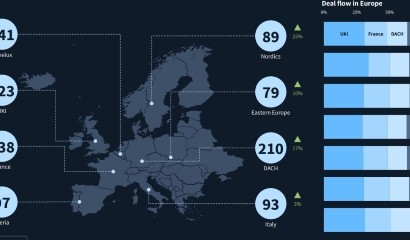Blocked deal with JetBlue breaks investors’ spirit – Spirit Airlines Credit Report
Summary: The capital structure of ultra low-cost airline, Spirit Airlines (NYSE: SAVE) reflects the challenges it faces as analysts and investors contemplate its future as a standalone airline. The analysis over the past two years had been centered on SAVE first merging with Frontier Group (NASDAQ: ULCC), and then with JetBlue Airways (NASDAQ: JBLU). On 16 January 2024, the US District Court for the District of Massachusetts blocked the proposed merger of SAVE and JBLU. Investor reaction to the blocked merger resulted in SAVE’s stock price crashing to USD 5.70 on 18 January from USD 14.97 prior to the news, and from the low-20s for most of 2022 and high-teens in 2023. SAVE then released preliminary 4Q23 results and provided an investor update on asset sales and liquidity that calmed the market and saw the company’s stock jump to over USD 9.00. SAVE and JBLU also filed a notice of appeal to the US Court of Appeals for the First Circuit on 19 January providing hope that the merger could be saved resulting in the stock price settling around USD 7 as analysts and investors reassess their outlooks, and consider the possibility that ULCC will make a second attempt to merge with SAVE. Today, JBLU filed an 8-K stating that it informed SAVE that certain conditions to closing the merger may not be satisfied and that the merger may be terminated on and after 28 January 2024. SAVE believes there is no basis for terminating the merger agreement and will continue to abide by all of its obligations under the merger agreement and expects JBLU to do the same. Today the stock price is down 17% to USD 6.05.
On the face of it, a discount airline with a relatively young fleet should be positioned to thrive, but the effects of COVID, rising costs due to inflation, ongoing competitive issues, an engine issue that will ground aircraft, and a reputation for poor service have caused turbulence that SAVE has been unable to avoid.
With the airline’s USD 1.1bn Loyalty Notes maturing in September 2025, it is essential for SAVE to find a way to refinance or extend the maturity of this debt to provide a runway for the company to execute its strategy to improve operational performance.
Our valuation for SAVE reflects a midpoint enterprise value to revenue (EV/Revenue) multiple of 0.35x and NTME revenue of USD 5.4bn. At the midpoint, all of SAVE’s debt is covered and the equity price is USD 1.92. Our waterfall scenario does not include operating leases, but if we did, using a NTME EBITDAR of USD 382m and a multiple of 5x, at the midpoint the secured debt is covered and the unsecured debt has a 15% recovery. This scenario includes a 5% restructuring fee.
SAVE’s Debt, Liquidity and Cash Flow
On 30 September, SAVE had USD 3.4bn of total debt, down from USD 3.6bn on 31 December 2022. The company had USD 50m of maturing debt during 4Q23, and has approximately USD 44m of debt maturities in 2024. During 4Q23, SAVE increased the capacity of its revolver to USD 450m from USD 300m, and extended the final maturity to 30 September 2025 from 30 March 2024. The company recently said that it is assessing options to refinance its USD 1.1bn of 8% senior secured notes due 20 September 2025. With these notes trading in the low-60s, any refinancing will occur with a higher coupon leading to higher interest expense.
SAVE stated that at year-end it had USD 1.3bn of liquidity that included USD 300m available under its revolving credit facility. On 3 January 2024, Spirit Airlines announced that it completed a series of sale-leaseback transactions during 4Q23 and early January 2024 with respect to 25 aircraft, 20 in December and five in January, resulting in the repayment of approximately USD 465m of indebtedness on those aircraft and net cash proceeds of USD 419m. These asset sales, while providing liquidity that should help the company navigate through 2024, have removed most of the unencumbered assets owned by SAVE.
Our NTME liquidity forecast, that includes a USD 400m minimum liquidity requirement, shows that SAVE will generate almost USD 94m in cash, but we note that this is accomplished through asset sales and the usage of sale leaseback transactions for upcoming aircraft deliveries.
As discussed below, Pratt & Whitney (P&W) has reported an issue related to its P&W Geared Turbofan (GTF) engine that has, and will, result in the grounding of aircraft to fix the problem. P&W is expected to make payments to airlines for this issue, but since the amounts are currently unknown, we have not included in our liquidity forecast any future payments that SAVE will receive.
SAVE’s total firm aircraft orders on 30 September consisted of 101 A320 family aircraft with deliveries through 2029. Out of those 101 aircraft, three were scheduled for delivery in 4Q23, and seven were scheduled for 2024. As of 30 September, SAVE had secured financing for seven aircraft scheduled for delivery through 2024, which will be financed through sale leaseback transactions. While the remaining 94 aircraft did not have financing commitments in place, SAVE had a financing letter of agreement with Airbus which provides for backstop financing for a majority of the aircraft. Purchase commitments for aircraft and engine orders, as of 30 September were expected to be USD 120.3m in 4Q23, USD 456m in 2024, USA 1bn in 2025, USD 1bn in 2026, USD 1.1bn in 2027, and USD 2bn in 2028 and beyond.
For 3Q23, SAVE’s cash used in operations was negative USD 195m compared to negative USD 119m for 3Q22, and free cash flow (FCF) was negative USD 241m after net capex of USD 47m, compared to FCF of negative USD 196m after net capex of USD 77m for 3Q22.
SAVE News Updates
In February 2022, Spirit Airlines and Frontier Group announced a merger to combine the airlines at a deal valued at USD 6.6bn, which implied a value of USD 25.83 per SAVE common share. In July 2022, this merger was terminated, and it was announced that JetBlue would merge with SAVE at an adjusted enterprise value of USD 7.6bn, or USD 33.50 per share in cash.
On 16 January 2024, the US District Court for the District of Massachusetts granted the US Department of Justice’s (DOJ) request for a permanent injunction against the proposed merger of SAVE and JetBlue. SAVE and JBLU appealed this decision on 19 January.
If the merger between SAVE and JetBlue is terminated for failure to obtain antitrust regulatory clearance, JetBlue will be required to pay (i) to Spirit, USD 70m, and (ii) to the Spirit stockholders, the excess of USD 400m minus the sum of the Approval Prepayment Amount and all Additional Prepayment Amounts previously paid by JetBlue to the Spirit stockholders. A lion’s share of this USD 400m payment has already been paid to stockholders by JetBlue.
On 25 July 2023, RTX, parent company of Pratt & Whitney (P&W), announced that it determined that contamination in powder metal used to manufacture certain engine parts will require accelerated inspection of the P&W Geared Turbofan (GTF) engine used on SAVE’s A320 aircraft. The accelerated inspections are anticipated to result in 600-700 incremental shop visits for all operators by the end of 2026. SAVE estimates that the average number of grounded aircraft in its fleet will increase to over 40 in December 2024 (19% of its fleet) from 13 in January 2024 (6% of the fleet). This situation has resulted in the disruption to SAVE’s flight schedule as engine shortages led to aircraft being taken out of service, and increased parts and maintenance costs. SAVE and P&W have been in negotiations regarding fair compensation for the financial damages related to the GTF. SAVE recently stated that while no agreement has been reached, it believes that the amount of compensation it will receive from P&W will be a significant source of liquidity over the next couple of years.
On 30 September 2023, SAVE had a fleet of 202 aircraft comprised of 20 A319 CEO, 64 A320 CEO, 82 A320 NEO, 30 A321 CEO, and six A321 NEO. The company is in the process of selling its A319 aircraft and increasing the number of A320 and A321 aircraft.
On the competitive front, SAVE’s top three largest network overlaps were with Southwest Airlines, American Airlines, and Frontier Airlines. Florida and Latin American markets have has gotten more competitive with United Airlines and Delta Air Lines adding to their capacity. Recent comments from competitors reflect this situation, with UAL stating that its Latin American unit revenues fell almost 13% during 4Q23 due to record industry capacity levels and heavy fare discounting. Delta stated that the Mexican and Caribbean beaches seem to have a little bit too much capacity this year, but that the US spring break bookings look great.
SAVE has agreements with credit card processors that would permit them, under certain circumstances, to retain a holdback or other collateral when future air travel and other services are purchased via credit card transactions. The holdback is a percentage of overall credit card sales that processors could hold to cover refunds to customers if SAVE fails to fulfill its flight obligations. Since SAVE has satisfied certain liquidity and other financial covenants, credit card processors were not holding back any funds. As of 30 September, the maximum potential exposure to cash holdbacks based on advance ticket sales and Spirit Saver$ Club memberships was USD 473.8m.
On 18 January 2024, S&P downgraded its issuer credit rating on Spirit Airlines to CCC+ from B, and lowered its ratings on Spirit’s enhanced equipment trust certificates (EETCs) to CCC+ after a federal judge ruled to block JetBlue’s proposed acquisition of Spirit. The downgrade is based on the expectation that Spirit’s operating performance will remain impaired through 2024 by its engine issues with P&W that will limit capacity growth, as well as weak revenue generation amid a supply-demand imbalance in the company’s key domestic leisure markets. The expectation is for further negative free operating cash flow, and heightened refinancing risk of the USD 1.1bn of loyalty bonds that mature in September 2025.
On 23 January 2024, Moody’s downgraded Spirit Airlines’ corporate family rating to Caa2 from Caa1, and its ratings on SAVE’s USD 1.1bn senior secured loyalty notes to Caa2 from B2. The downgrade reflects the belief that a potential default has increased since the ruling that the acquisition by JetBlue of Spirit would be anti-competitive and a violation of the Clayton Act. The downgrade reflects expectations that Spirit’s operations will continue to report losses through 2024 with a projected debt to EBITDA at higher than 10x by the end of 2024, a low-single digit operating margin, and an EBITDA margin of about 11%. Operating cash flow is forecast for breakeven in 2024 with significant negative free cash flow as the airline will need to take deliveries from Airbus and lessors to fill the loss of capacity from the P&W GTF engine issue. Moody’s believes that alternative sources of funding are limited following the recent sale leaseback transactions, with the company’s headquarters remaining as one of the more significant sources of liquidity. The possibility to refinance tranches or issue junior tranches of EETCs remain a potential source of liquidity.
SAVE’s 4Q23 Outlook
Total revenue for 4Q23 is expected to be at the high end of the company’s initial guidance of USD 1.28bn-USD 1.32bn, as bookings for the peak travel period over Christmas and New Years were strong. Operating expenses are estimated to come in better-than-expected primarily due to lower fuel costs driven by better-than-expected fuel efficiency, lower airport costs, and other items. The adjusted operating margin was positively revised at the midpoint by 450 basis points.
For 1Q24, SAVE estimates capacity growth (ASM) of 1%-2% YoY.
Valuation
Our valuation for SAVE reflects a midpoint enterprise value to revenue (EV/Revenue) multiple of 0.35x and NTME revenue of USD 5.4bn. At the midpoint, all of SAVE’s debt is covered and the equity price is USD 1.92. Our waterfall scenario does not include operating leases, but if we did, using a NTME EBITDAR of USD 382m and a multiple of 5x, the secured debt is covered and the unsecured debt has a 20% recovery with a zero value for the equity. This scenario includes a 5% restructuring fee.
With the merger blocked, we have heard some chatter about the ranking of the company’s USD 1.1bn Loyalty Notes. While these notes are first lien debt that is secured by cash flows from the loyalty program, some analysts think that the Spirit brand is impaired, and some portion of this debt could be treated as unsecured debt. The thinking goes that JetBlue was going to roll Spirit’s loyalty program into its TrueBlue program, implying that the Spirit brand wasn’t that valuable. Anyway, it is just some food for thought. In our analysis, we treat the Loyalty Notes as secured debt.
SAVE – Est 30 Sept 2024
Total Secured Debt (est) 2,149
Less Estimated Cash (1,134)
Net 1L Secured Debt 1,015
Unsecured Debt 661
Net Debt 1,676
Shares Outstanding 109.2
The Details
Total operating revenue for 3Q23 was USD 1.3bn, down 6.3% YoY as compared to 3Q22, and total revenue per available seat miles (TRASM) was 9.14 cents, a decrease of 17.4% YoY on 13.5% more capacity. Fare revenue declined USD 121m (-18.6%) sequentially and USD 147m (-21.8%) YoY. On a passenger flight segment (PFS) basis, total revenue per PFS fell 13.5% to USD 116.43 as fare revenue per segment dropped 27.8% to USD 48.73, but non-ticket revenue per segment rose 1% to USD 67.70. SAVE’s load factor for the quarter was 81.4%, down from 83.3% for 3Q22. Softer demand and discounted fares led to a disappointing 3Q23, primarily due to intense competition in its Florida markets. SAVE continued to see discounted fares for travel booked through the pre-Thanksgiving period, although that improved during the peak holiday period. Thus, the airline is evaluating its growth profile and competitive position, and decided to slow its capacity growth, and aircraft deliveries.
SAVE defers the amount of award travel obligations as part of the loyalty deferred revenue within air traffic liability (ATL) on the balance sheet, and recognizes loyalty travel awards in passenger revenues as points are used for travel or expire unused. As of 30 September 2023, the company had an ATL balance of USD 429m, with substantially all of this to be recognized within 12 months.
On the cost side, operating expenses rose 4.9% to USD 1.4bn primarily due to increases in salaries, wages and benefits (+30% YoY), aircraft rent (+29% YoY), and landing fees (+13% YoY), partially offset by a decrease in fuel expense (-10.5% YoY), as the average cost per gallon of fuel fell almost 19% YoY, but was partially offset by a 10.3% YoY increase in fuel consumption. The jump in salaries, wages and benefits is primarily due to the two agreements that SAVE negotiated with the unions for the pilots and flight attendants that were ratified in January 2023 and April 2023, respectively.
SAVE reported CASM of USD 10.51 cents compared to 11.37 cents for 3Q22. On an adjusted basis, which excludes fuel, CASM was USD 7.13 cents compared to USD 6.79 cents, with the increase on a per ASM bases due to higher salaries, wages and benefits.
The reported operating margin for 3Q23 was negative 15% compared to negative 2.7% during 3Q22.
We calculated adjusted EBITDA for 3Q23 of negative USD 93.3m compared to positive USD 92.3m (6.9% margin) for 3Q22 and positive USD 125m (8.7% margin) for 2Q23.
As of 31 December 2022, SAVE had net operating loss (NOLs) to reduce future tax income of USD 1.5bn for federal income tax purposes, and approximately USD 594m for state income tax purposes.
Business Description: Spirit Airlines (SAVE), as an ultra low-cost (ULCC) carrier, offers affordable travel to value-conscious customers. The business model allows SAVE to offer unbundled base fares with customers given the ability to choose options such as checked and carry-on bags, advance seat assignments, priority boarding, and refreshments (non-fare passenger revenue). As of 30 September 2023, it had a fleet of 202 Airbus aircraft, and is in the process of retiring the 20 A319 in its fleet. The A319 have an average age of over 16 years, while the remaining fleet has an average age closer to five years. During 2022, the airline served 92 destinations in 16 countries situated in Latin America, the Caribbean, and the US. SAVE has six union-represented employee groups that together represented 85% of all employees on 30 September 2023. The two largest unions, The Air Line Pilots Association, International (ALPA) represents 27% of the workforce and has its contract expiring in January 2025, while the Association of Flight Attendants (AFA-CWA) represents 48% of the workforce and has its contract expiring in January 2026.



















